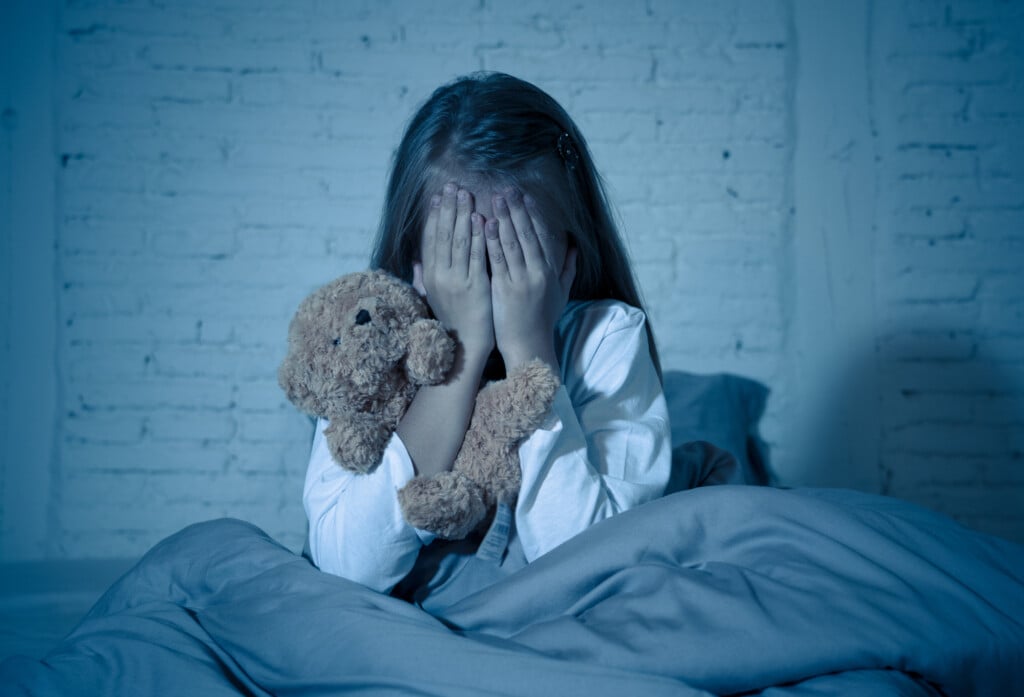Pediatric Nightmare Study Looks at Impact of Chronic Nightmares

“We were at a point where it was not only impacting our son’s life, but the entire family,” said Sarah Jones, mom of three, including 6-year-old Graham.
Graham had been suffering from nightmares that were impacting both his sleep quality and his demeanor.
“It was really a difficult time for us. We knew he was tired,” Jones said. “His sleep was being interrupted, his teacher noticed he was having a hard time paying attention at school, and he started misbehaving more, which was very uncharacteristic of him.”
Fortunately, the Jones family received help from their pediatrician on the matter. But during the process, they learned that they were not alone.
The University of Tulsa and the University of Oklahoma are currently joined together in an ongoing collaborative project to study pediatric nightmares of children between the ages of 6-17. Led by Drs. Tara Buck and Associate Professor of Psychology Lisa Cromer, their team is offering five cognitive behavioral therapy sessions for children suffering from weekly nightmares.
“This research stemmed from a need for families with kids who have nightmares to get help,” Dr. Buck said. “We sought a treatment that would help kids and families sleep better and learn how to reduce or even eliminate nightmares.”
Nightmare Frequency and Consequences
While Dr. Buck explained that some nightmares do go away on their own, as with the Jones family, she stressed that some nightmares can become especially bothersome or are chronic and can affect the child’s sleep, mood, family relationships and daytime functioning.
“This can lead to more serious problems like other mental health problems,” Dr. Buck said. “Our team is currently studying the impact that nightmares have on mental health issues including suicidal thoughts and behaviors.”
According to their research, one in six children with mental health difficulties suffer from chronic nightmares. But Dr. Buck suggests that even this may be a conservative number as nightmares are rarely included in routine clinical screenings.
“Everyone has the occasional nightmare, which is not to be worried about,” Dr. Buck said. “But when we worry about having another nightmare, or fear of going to sleep, it can start a feedback loop that can increase the chance of having a nightmare.”
Dr. Buck explained that sometimes when the child has a distressing nightmare, they will show signs of stress during the day.
“This demonstrates what we refer to as a hyperarousal and even anticipatory fear before bed,” Dr. Buck said. “This hyperarousal and anticipatory fear in turn causes more nightmares. Chronic nightmares are hypothesized to result in long-term dysphoria, poor sense of control, and ultimately hopelessness.”
What Can Parents Do About Nightmares?
So, what should parents do if they feel that their children may be suffering from nightmares? Dr. Buck says it is as simple as just asking and starting the conversation with the child.
“Kids often assume that parents know everything, and so they don’t volunteer information,” Dr. Buck said.
Some questions Dr. Buck suggests starting with are:
“Do you have nightmares?” or “Do you have bad dreams that wake you up?”
From there if they answer yes, Dr. Buck said they may be good candidates for the study.
The TU/OU Pediatric Nightmare Study
The therapy sessions that their team has constructed consist of five weekly sessions that educate the child about the importance of sleep. The team helps to create motivation for habits that can improve sleep and guide the child to rewrite their nightmares into pleasant dreams.
“They learn ways to handle stress, relax at home, and learn how to become masterful sleepers,” Dr. Buck said.
All sessions are conducted through telehealth and no in-person appointments are required. Dr. Buck stressed that there is no cost to participate in the study, and participants will receive gifts or gift cards through Amazon for each visit.
If you are interested in participating, you can reach out to their study team. They will ask preliminary questions to see if your family would benefit from participating in the study.
Dr. Buck said parents can also speak to their pediatrician or primary care provider to get more follow-up and support.
“This is very innovative research,” Dr. Buck said. “Few people in the world are researching nightmares in children, and this a unique opportunity for Oklahomans to participate in this.”
The pediatric nightmare study is funded by an Oklahoma Center for the Advancement of Science and Technology (OCAST) grant. They can be reached at 918.631.3242 or sleepstrong@ouhsc.edu for inquiries or more information.




